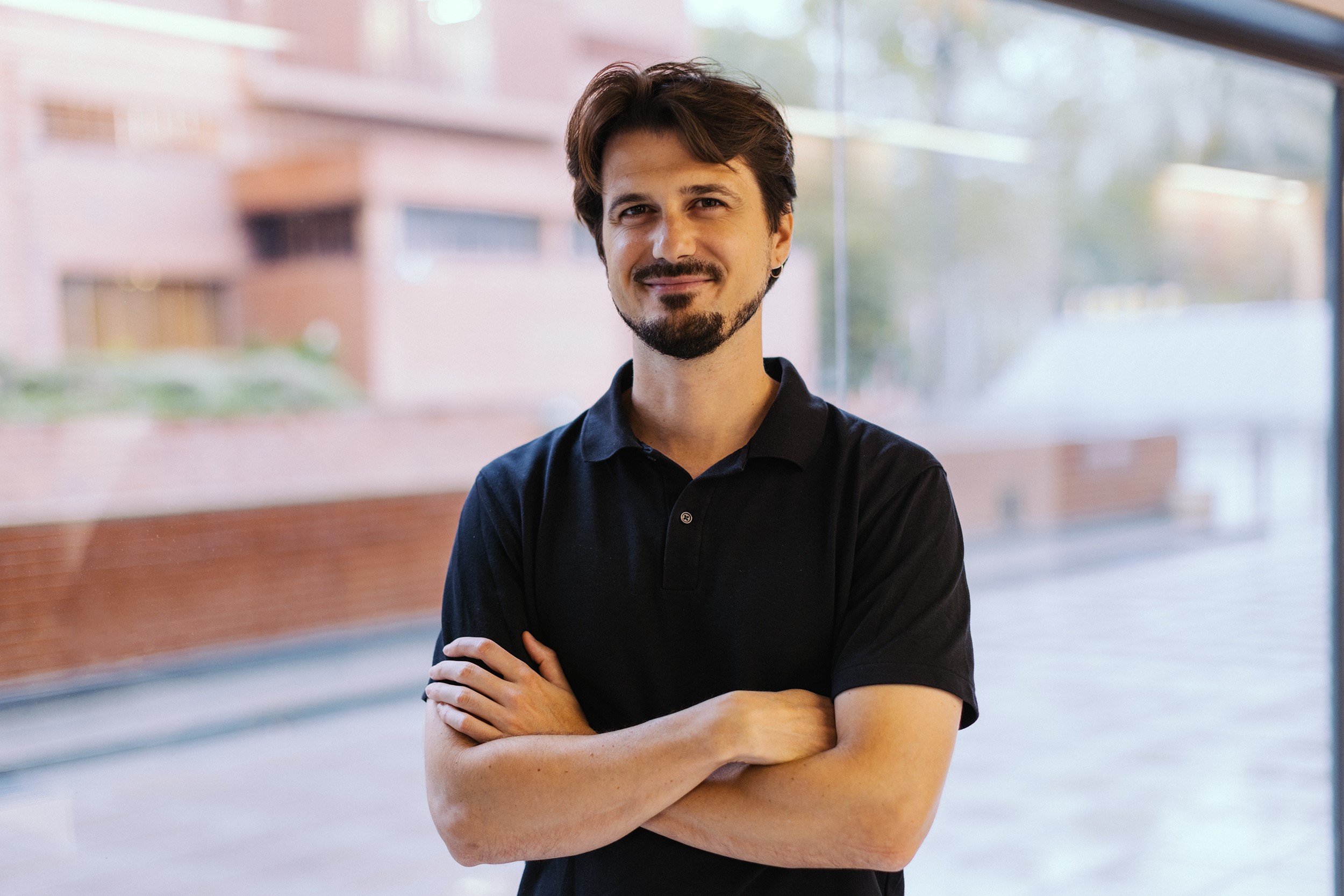Marc de Manuel appointed ERC Ambassador in Spain
Marc de Manuel appointed ERC Ambassador in Spain

On April 28, 2025, the European Research Council (ERC) and the Association of ERC Grantees (AERG) launched the new ERC Ambassadors network. This joint initiative aims to promote investment in frontier research and highlight the importance of science by demonstrating how it benefits both the economy and society.
Marc de Manuel, principal investigator at the Institute of Evolutionary Biology (IBE), has been selected as one of 32 ERC grantees to become ERC Ambassadors. Of these, 17 are women and 15 are men, from 21 EU Member States and five associated countries: Israel, Norway, Switzerland, Turkey, and the United Kingdom. The new ambassadors come from a wide range of disciplines, spanning life sciences, social sciences and humanities, physical sciences, and engineering.
“It is a privilege to be part of this ERC Ambassadors network at such a crucial time. Now more than ever, we need to stand up for free, responsible, and excellent European research,” says Marc de Manuel, principal investigator of the Mutation Dynamics group at IBE.
ERC Ambassadors will serve as influential advocates for frontier research in Europe, engaging with policymakers, the media, and local research communities to promote and protect its value. They will collaborate with the ERC’s National Contact Points (NCPs), who play a key role in providing guidance, practical information, and support to local researchers in their native language on all matters related to Horizon Europe.
Ambassadors are appointed for a one-year term, renewable up to six times depending on continued interest. The AERG and the ERC aim to expand the ERC Ambassadors network in the future to include more EU member states and associated countries.
About Marc de Manuel
Marc de Manuel earned his degree in Human Biology in 2013 and a Master’s in Bioinformatics from Pompeu Fabra University (UPF) in 2015. He completed his PhD at the Institute of Evolutionary Biology (IBE) under the supervision of Tomàs Marques-Bonet - an ICREA researcher at IBE and professor at the UPF- where he studied the population history of chimpanzees and bonobos. He later joined Molly Przeworski’s lab at Columbia University (New York) as a postdoctoral researcher, focusing on the determinants of germline mutation and recombination in vertebrates.
In 2024, he launched the Mutation Dynamics Lab at the IBE with support from an ERC Starting Grant, to investigate the molecular mechanisms driving mutation and their evolutionary implications.
The Mutation Dynamics Lab is part of IBE’s Genomes, Populations, and Species Programme. The lab investigates how mutations accumulate in cells as individuals age. These mutations play a key role in evolution, aging, and disease, yet remain poorly understood. The IBE team works to uncover how mutations arise—their underlying mechanisms—and why mutation rates vary across cell types and species. Their research focuses in particular on the selective pressures that drive the evolution of mutation rates.
